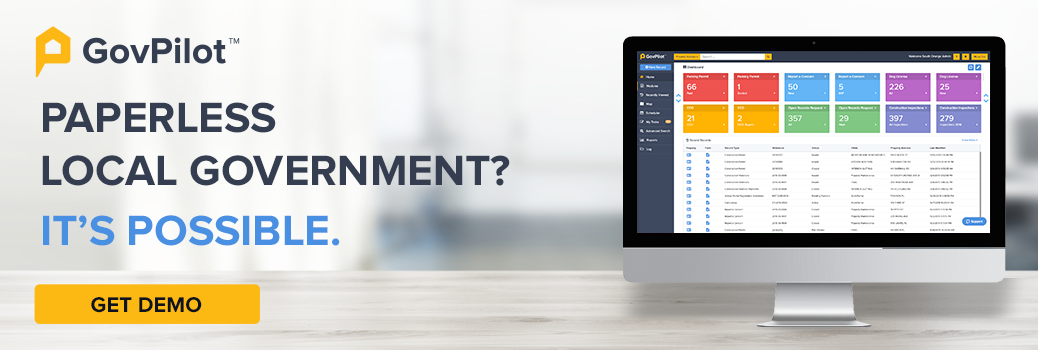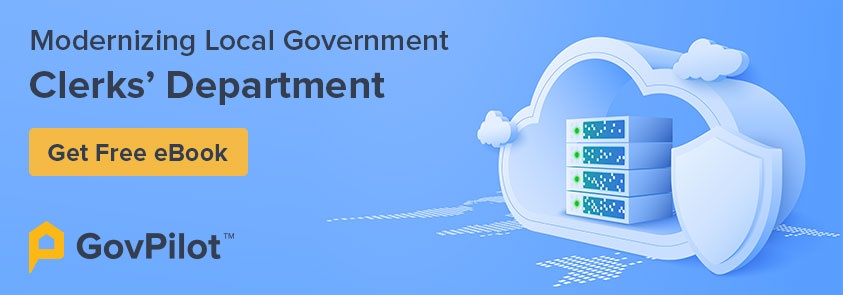America is the world’s melting pot for a reason. People from around the world come to the United States for the the sheer amount of opportunity in this country.
Yet, despite the United States’ status as a place of refuge for so many immigrants, many local governments nationally do not have the proper infrastructure in place to fully support non-English speaking constituents.
In this guide, you’ll come to recognize the importance of providing better government services for limited English proficient (LEP) residents and learn more about how upgrading technology and infrastructure can help immigrant communities transition to American life.
Why Do Local Governments Need to Address Language Barriers?
There are millions of Americans that don’t speak English as their first language; many don’t speak English at all.
Local government officials across the country need to have procedures in place to ensure that limited English proficient migrants have access to the same public information and government services as English speaking residents.
Without the right approach to multiculturalism in your community, immigrants and asylum seekers may struggle to acclimate and access critical resources and services.
Follow along for specific tips for making your local government more inclusive for LEP constituents.
Tips for Overcoming Local Language Barriers in Government
The following government technology, infrastructure innovations, and workflow improvements can help LEP citizens and public officials communicate.
Here are key ways to overcome language-barriers in local government:
1. Use Digital Forms for Permitting and Licensing
Moving permitting and licensing forms across departments to a digital capacity will allow for citizens that speak any language to translate the forms and submit the necessary information in their native tongue. Unlike PDFs, digital forms can be translated by Google into hundreds of different languages. Once an application is submitted, it can be translated back to English for the government employees to review.
Additionally, since many immigrants do not have access to cars, digital forms can increase availability to government applications for people without vehicles.
Learn more about How Government Permitting Software Works.
Popular digital permitting and licensing application types relevant to LEP citizens include:
- Business registration application
- Construction permit
- Parking permit
- Pet license
- Senior citizen registration
- Use of public space application
2. Use Tangible Data to Make Informed Decisions About Your Population
A modern government population management strategy needs to pay attention to the types of people moving to your community.
If your city is taking in asylum seekers from a particular country like Ukraine, or seeing an influx of immigrants that speak a particular language in your government data tracking, you can form a strategic plan to offer translations in local signage and resources.
Physical forms should be translated to relevant languages at the clerk’s department and other relevant government departments that are commonly utilized by non-native speaking community-members. Still heavily reliant on these paper forms? Here are 13 Benefits of Making a Government Digital Transformation away from paper.
3. Hire Government Workers That Speak Multiple Languages
Your local government recruitment strategy should prioritize hiring government officials that speak English as well as commonly spoken languages in your neighborhood.
For example, if your community is in a predominantly Spanish-speaking region, you should actively recruit officials that can assist Spanish speaking community members in-person and remotely.
For better human resources department workflows and data storage all around, consider government HR software.
Learn more about forming a better local government human resource strategy:
- Local Government Human Resource Strategic Planning
- Local Government Employee Retention Strategy
- Offering Better Local Government Benefits for Workers
- How to Recruit Government Tech Workers
4. Form Public-Private Partnerships with Translators
Local government budgeting needs to include funds for paying translators in relevant departments.
Municipalities often have translators in-person and at remote court hearings to assist non-English speaking attendees. Improve public meetings and events by utilizing translators to ensure LEP citizens have equal access to important local information.
Government software can store a digital record of all the businesses you have relationships with, meaning if you release a government request for proposal for translation support, you’ll have a contact list to tap into in the future.
5. Upgrade Local Signage
Infrastructure such as road signage and public transit route maps should be updated to include not only English but other commonly spoken languages as well.
Consider these infrastructure grants to implement these changes:
- US Infrastructure Investment & Jobs Act: What It Means for Local Governments
- American Rescue Plan Act: What It Means for Local Governments
6. Modernize Digital Infrastructure
Better Internet can improve the quality of life for citizens of all backgrounds. Governments embracing Broadband infrastructure are making it easier for their citizens to tap into digital government resources and applications from a remote location.
Governments investing in high-speed Internet are also seeing improved local economic development as well as an easier transition into utilizing government technology in the office and field.
7. Store Government Documents in the Cloud
Cloud-based government data storage makes it easier to store records pertaining to paperwork from English and LEP citizens alike. Whenever a relevant license or permit application is submitted digitally, it will be instantly stored alongside other documentation from the individual / property at hand. If a LEP community-member submits a translated form in-person, it can be uploaded to the cloud in seconds by an administrative official
If a non-English speaking community-member submits an application that is denied, digital government communication channels allow a language proficient public official or private contractor to reach out and inform the applicant on what they need to get their application approved in their native language.
Find out more about How the Local Government Cloud Works.
How Else Can Local Governments Improve the Quality of Life for LEP Community-Members?
Non-English speaking community-members need to be considered in your local government equity strategy, since they’re often members of vulnerable communities.
Here are local infrastructure and technology improvements that will make your community more accessible for citizens with language barriers:
1. Modern Public Transit
Immigrants are statistically less likely to utilize cars than American citizens. Modernizing your local public transportation like buses, trains, and rail-systems will reduce reliance on car-centric living while simultaneously making it easier for less mobile constituents to get around. When residents can easily access employment opportunities, and other services, your community will grow.
Explore this helpful resource on How Local Governments Can Modernize Public Transportation.
2. Improve Bike Lanes, Pedestrian Zones, & Public Spaces
Let LEP citizens without cars get around themselves by building and maintaining public spaces such as parks, bike lanes and pedestrian zones to make your community more accessible for everyone. Parks and recreation software can make it easier to build infrastructure more quickly and improve accessibility to public spaces.
If you’re building more bike lanes, consider these Tips for Regulating E-Bikes. And explore the Modern Local Parks & Recreation Strategy guide for more actionable tips.
3. Better Municipal Planning
Members of LEP communities tend to stick together since they can communicate without the language barrier . Use data to make informed decisions around the demographics in neighborhoods and make sure local signage, infrastructure, and commercial spaces reflect the language and culture of the local population.
Here are Municipal Planning Tips for City Governments.
Overcome Language Barriers in Your Local Government
Diversity can be incredibly rewarding and enrich a local neighborhood with new perspectives, excellent food and culture, and economic development.
Local governments need to overcome language barriers to make their community equitable for everyone that lives there and visits. To learn more about how GovPilot local government software and digital permitting applications can make government information and forms translatable, book a free demo.
Local Government Language Barrier FAQs
How Does Government Technology Help with Overcoming Language Barriers?
Government software can help in getting limited English proficient (LEP) community-members access to public information, government applications, and public services.
- Translatable permit and license applications across departments can be made accessible from your local government website for easy access for everyone.
- Virtual court hearings and meetings can make it easy for LEP community-members to attend and for local governments to bring in translator as needed
- Digital workflows make local governments more efficient across the board, meaning you’ll be able to make interactions with the public more simple for citizens of all backgrounds and get infrastructure projects completed more quickly.
Why Should Local Governments Embrace Diversity?
Diversity at the local level can help a community to flourish. Immigrants bring culture to the neighborhood and local businesses such as restaurants, grocery stores, and other services. More jobs are created at various wage levels. And obviously, more residents moving in from any background can create economic opportunity.
Why Do Local Governments Need to Hire Workers That Speak Multiple Languages?
Hiring multicultural employees in local government is critical for having a diverse set of perspectives and beyond.
Here are key benefits to recruiting and retaining multicultural government employees:
- Diverse perspectives: government Strategic planning needs to consider the impact of policies from people of all backgrounds. Hiring multicultural workers will ensure more perspectives are being heard.
- Translation support: bilingual government officials can help limited English proficient community members fill out paperwork or find out immigration in-person or remotely.
- More trust: Government officials that are multicultural and speak the language of their citizens can build better trust in the local government.
- Cost savings: it can be cheaper to utilize internal team-members for translation support rather than outsourcing it to private contractors.
Read on for more Local Government Trends:
- Common Local Government Challenges Right Now
- Local Government Senior Citizen Management Strategy
- How to Reduce Obesity in Children and Adults at the Local Level
- Coordinating Local Health Testing Tips for Local Health Departments
- Digital Government Credit Card Payment Processing Services to Look For
- Public Health Data Management & Storage
Sources
- https://www.sciencedirect.com/science/article/pii/S2590198220302074
- https://hcnmedia.com/news/latinos-in-the-united-states-the-10-cities-with-the-most-hispanics/
- https://www.shrm.org/resourcesandtools/hr-topics/employee-relations/pages/why-companies-hire-more-multilingual-workers.aspx
- https://www.hhs.gov/about/news/2022/10/06/hhs-takes-action-break-language-barriers.html








